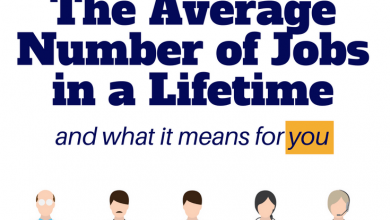How much financial help should you give your kids?

A few months ago, there was a Reddit post in which a 30-year-old discovered his parents (and in-laws) had accumulated retirement nest eggs in the tens of millions.
And he was furious.
The original post has since been deleted but this was the original question reddit user FunkyNedAvenger:
(warning: a bit of “coarse” language is upcoming 😂)
My wife and I have spent almost two decades of leveling up in jobs and careers and are now in our late 30s with two small children in a HCOL state. We scraped and suffered to buy a small ranch house and two used larger cars for our family. Our credit suffered. I’m personally in $20k+ of cc debt that I am slowly working down. Our kids attend daycare that bled out savings dry. Typical millennial shit.
Last week I came across my FIL’s accounts summary. $10+M. Later that week I mentioned I saw that to my own dad. He said “Well he’s doing just a bit better than me then”
LITERALLY WHAT THE FUCK.
I would give my last dollar to my son to make sure he was more comfortable. To make sure he didn’t suffer debt or bad credit as long as he was working. Here are our own fucking parents sitting on their piles of gold watching us navigate a new level of fucked up economics and shopping for discounts and raising our children in sup par school districts and for fucking WHAT?
Pretty upset right?
But it begs the question, how much should parents be helping their kids?
Adversity is Good for You
I believe adversity is good for you. We’ve all heard stories (or experienced them first hand) about people who were spoiled or always felt entitled. How they don’t appreciate what they have or are otherwise not great people to be around.
I think the human brain struggles when resources are too abundant. Comfort is a killer.
If your life is too easy early on, it becomes difficult to adapt to a more challenging environment.
It doesn’t sound like Ned (the author of the post) starved. Neither did his kids. And while going into $20,000 of credit card debt is difficult, I bet he appreciates money more than if he were handed assistance at every turn.
We have four kids. We plan to help them at strategic points in their life but they need to navigate those challenges on their own so they become better humans. They need to learn skills like resourcefulness and not how to write a check (or pull out a credit card) to solve a problem.
$20,000 is a lot of debt
In Experian’s survey (from 2023), the average credit debt balance was $6,521.
Ned has $20,000 of credit card debt. Over three times the average.
By any measure, Ned and his family were living beyond their means.
And he mentioned their credit suffered, which likely means he missed a few payments or is otherwise using a huge percentage of his available credit (or both).
We don’t know why they’re in that much debt but I think knowing that would provide a lot of color. Was it a series of emergencies that was made worse by high interest rates? Or was it less than responsible spending and living large on plastic?
If it’s the latter, I suspect there’s going to be a wee bit less compassion for their situation.
Communication is Extremely Important
Communication underpins all relationships. If you have open lines of communication and you feel that you can open and honest, which we try to be with our kids, then small issues don’t become larger problems.
If I knew my kids were struggling and they came to me, I’d look for ways to help. Sometimes that’s financially, oftentimes it’s not.
It’s very likely that Ned’s parents don’t know he’s struggling. We only know of the lasting effects of his choices ($20k in credit card debt) but not how it was accumulated.
It’s possible he looks like he’s doing well. Two small children in a high cost of living area, homeowners, two cars, and kids in daycare (which probably costs as much as the two cars and a mortgage!)?
It looks like success.
His parents and in-laws may have no idea they needed $20,000 in credit card debt to get there.
Money is an emotional subject (this post is a prime example) and given the level of resentment, it’s possible that money was a sensitive subject in the home. Maybe there’s a bit of pride at play?
Second, if he had reached out for help, do you think his parents would’ve said no? It’s impossible to know for sure but I don’t think they would. If you want help, you have to ask for it.
We Plan to Help Our Kids
But not roll out the red carpet, per se.
I grew up knowing that my parents had my back. If all else failed, I could come home and restart. Fortunately, I didn’t have to but just knowing it was an option is powerful.
I want them to know that they are able to take chances, make smart choices, and if things don’t work out, a safety net is there for them. I don’t believe in the whole “burn your ships” to force you feel like your back is against the wall.
Let’s be honest, having to move back in at home after going off to college is a pretty bitter pill to swallow on its own.
We will be there to help them though we won’t sacrifice our retirement to do so. They will have long careers to make up for any missteps they make along the way, especially if those missteps are early in their careers.
Retirement & Long Term Care is Expensive
Ten million dollars is a lot of money and most people don’t have parents with that kind of money, but retirement is a long time. They worked hard for their money and, let’s be fair, they should be able to spend it however they like.
Long term care is also extremely expensive, especially as you get older and your body and mind begins to deteriorate. While a $10 million nest egg is likely more than enough, it’s unfair to be spending someone else’s money.
What do you think?
Other Posts You May Enjoy:
100+ Best Freebies & Discounts for College Students
If you’re like most students, your cash is limited. So any discounts you can grab are awesome. Here’s a list of 100 discounts you can take advantage of with nothing more than your student ID or .edu email.
Addition Financial Credit Union Bonus: $50 / $100 Checking
Florida-based Addition Financial Credit Union has a modest bonus offer that is only available to the residents of a few select Florida counties.
Vanguard Cash Plus Account Review 2024
The Vanguard Cash Plus Account is Vanguard’s cash management account, but is it worth getting? We take a closer look at its offering and compare it to other brokers and cash sweep options.
What is Portfolio Diversification?
Diversification can you help you maximize your investment returns while lowering your risk. Diversification isn’t just owning more funds or stocks, it’s a specific way of thinking about your allocation so you are taking the right risk.

About Jim Wang
Jim Wang is a forty-something father of four who is a frequent contributor to Forbes and Vanguard’s Blog. He has also been fortunate to have appeared in the New York Times, Baltimore Sun, Entrepreneur, and Marketplace Money.
Jim has a B.S. in Computer Science and Economics from Carnegie Mellon University, an M.S. in Information Technology – Software Engineering from Carnegie Mellon University, as well as a Masters in Business Administration from Johns Hopkins University. His approach to personal finance is that of an engineer, breaking down complex subjects into bite-sized easily understood concepts that you can use in your daily life.
One of his favorite tools (here’s my treasure chest of tools, everything I use) is Empower Personal Dashboard, which enables him to manage his finances in just 15-minutes each month. They also offer financial planning, such as a Retirement Planning Tool that can tell you if you’re on track to retire when you want. It’s free.
Opinions expressed here are the author’s alone, not those of any bank or financial institution. This content has not been reviewed, approved or otherwise endorsed by any of these entities.



